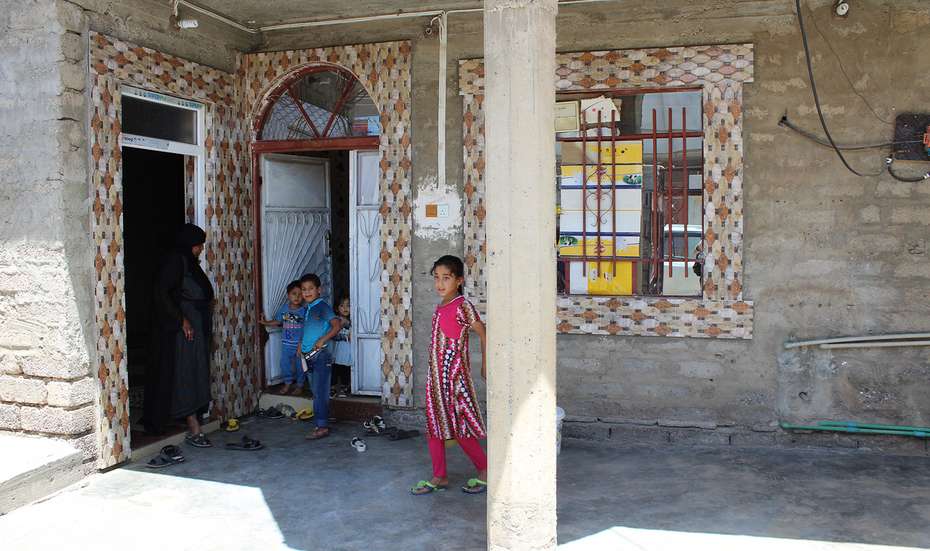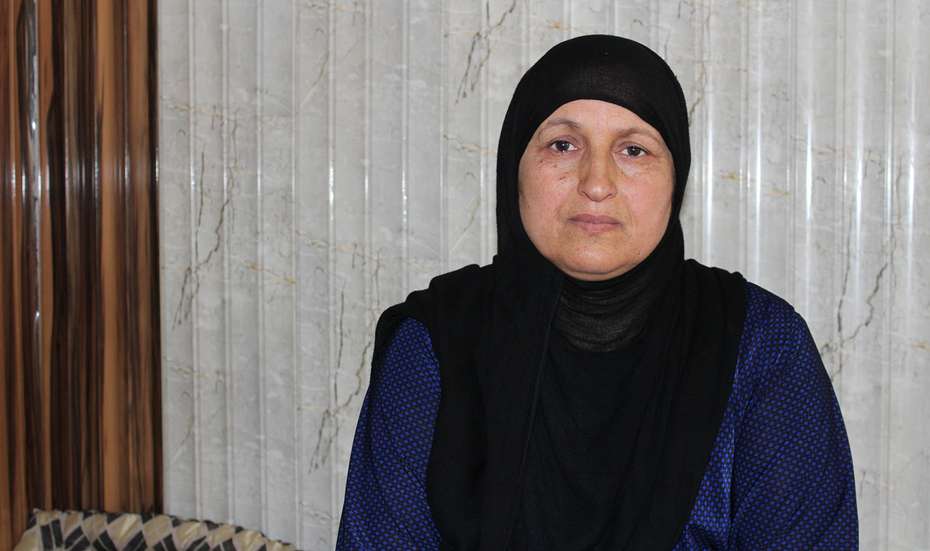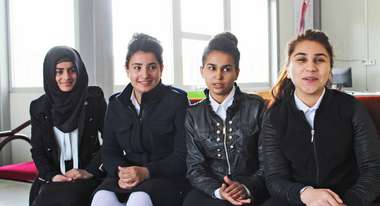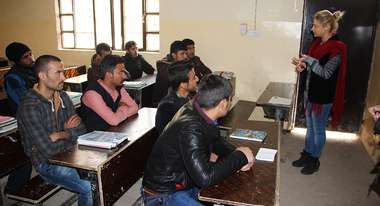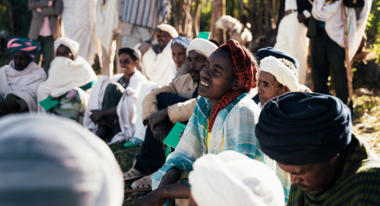Marriage only after graduating from university
Mariam Khaled Mohammad who participated in Welthungerhilfe Cash for Work activities in the city of Rabia, Iraq is a modern woman. In a region where young girls are still married at the age of 13 or younger, Mariam made a deal with her daughter that she will not get married until she graduates from university.
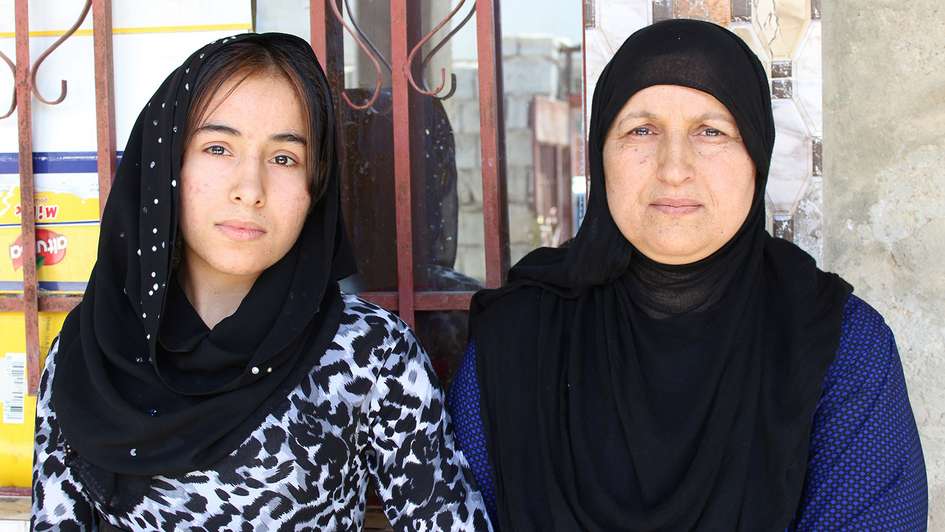
As a Communications Expert for Welthungerhilfe in Turkey, Syria, Lebanon and Iraq, I meet many people with interesting, inspiring, but often also sad stories. One woman who left a lasting impression on me was Mariam Khaled Mohammad from Rabia.
I first met Mariam when I was accompanying a journalist visit of Welthungerhilfe in Northern Iraq. She was one of the few women in the conservative city of Rabia on the Syrian border in Northern Iraq who agreed to share her story with three German journalists.
“I am a modern woman”
When we met Mariam in a local school for an interview, I asked her if she was comfortable being photographed. She looked at me and smiled: “Of course; I am a modern woman.” When one of the reporters asked Mariam about her 17-year-old daughter Amira and her plans for the future, Mariam suddenly became very serious: “I made a deal with my daughter that she will not marry until she graduated from university.” In a region of Iraq where young girls are still married at the age of 13 and younger, Mariam’s determination to put her daughter’s education first shows the attitude of a truly modern woman. After our first meeting, I wanted to find out more about Mariam’s story.
One week later, I visited Mariam at her house. She told me that she had been raising her seven children by herself alone after her husband died. She was fighting for her family’s survival, struggling financially and physically after she was diagnosed with cancer. “After my husband died, I bought fabric to make dresses and sell them. Initially, I had no money for the fabric, but the shop owner agreed to let me pay later.”
In 2014, the city of Rabia was captured by the so called Islamic State (IS). Most residents were forced to flee. After the region was retaken by the Peshmerga in 2015 and people slowly started to return, they were left with nothing: Many houses and large parts of the infrastructure were destroyed. There were no jobs, no power, and the water supply was unreliable.
Destruction and poverty after liberation from IS
In order to survive, the city’s residents help each other. Whoever is able to do so supports families, friends, and neighbours with money. Debts are repaid whenever the situation improves. “When I was diagnosed with breast cancer, friends and neighbours collected money for me so that I would be able to afford treatment in Dohuk,” Mariam recalls.
But money and her health are not Mariam’s only concerns. “I don’t want my daughter Amira to spend her future in this close-minded society. I want her to be able to live in a more open and free environment,” she tells me.
Married at the age Of 11
Her father’s last wish was for his daughter to become a doctor. Amira is working hard to make his dream come true. For Mariam, her daughter’s education is an absolute priority. When I start asking Mariam questions about child marriage during our interview, her face hardens and tears are streaming down her face: “I was only 17 when I was married myself. My first husband and I did not get along. He finally divorced me and kept my first two daughters. He married them off when they were 11 and 13 years old. I only found out later. I cried a lot during that time.”
The two daughters, now 25 and 26 years old, were separated from their husbands after IS captured their city. They are now living in a camp for displaced persons near the city of Telafar. In August 2017, the town was still largely under IS control. Mariam finally managed to contact her daughters and is waiting for them to leave the camp to come and live with her in Rabia: “My own life has always been filled with problems. I want my children to be happy!”
Mariam Khaled Mohammad participated in Welthungerhilfe Cash for Work activities in the city of Rabia, Northern Iraq. Financed by the Gesellschaft für internationale Zusammenarbeit (GIZ) and the Federal Ministry for Economic Cooperation and Development (BMZ), schools, roads and hospitals in 150 villages in Northern Ninewa province are rehabilitated. Some of the rehabilitation efforts are carried out by the local community. They receive a monthly salary for their work, which helps them to buy food and daily necessities. The project is implemented in partnership with the Danish Refugee Council (DRC).





